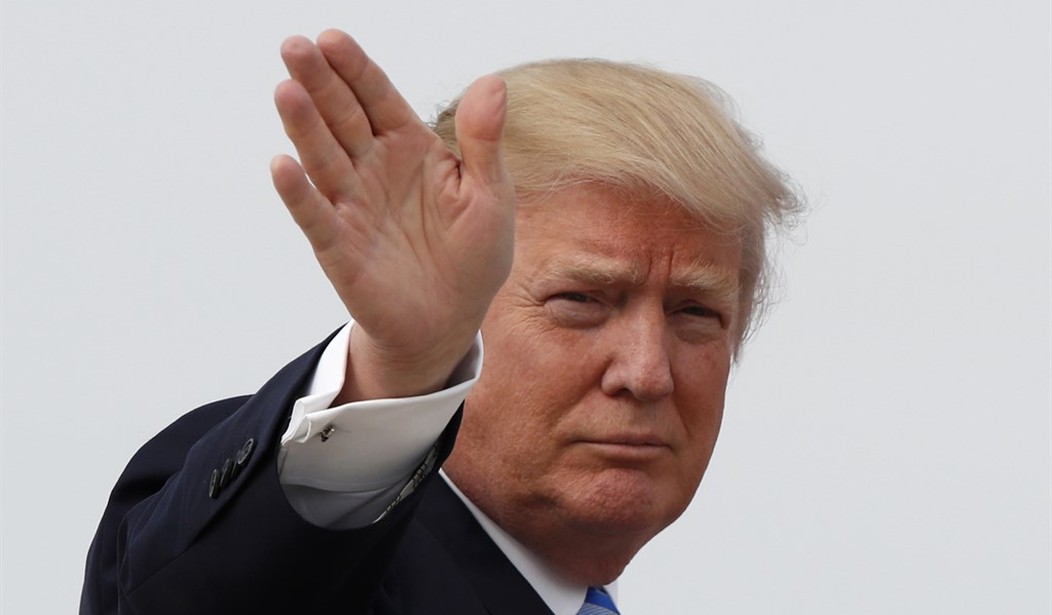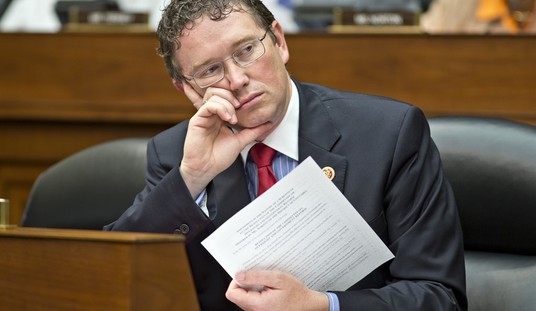Are they, though? Over the past couple of weeks, Donald Trump has offered more than one surprising (if not jarring) shift in rhetorical direction, if not necessarily policy. Politico’s Alex Isenstadt and Madeline Conway say that the changes in posture toward China and Russia — and distancing of Stephen Bannon — has caused his most passionate backers to begin “losing the faith”:
As Trump struggles to keep his campaign promises and flirts with political moderation, his most steadfast supporters — from veteran advisers to anti-immigration activists to the volunteers who dropped their jobs to help elect him — are increasingly dismayed by the direction of his presidency.
Their complaints range from Trump’s embrace of an interventionist foreign policy to his less hawkish tone on China to, most recently, his marginalization of his nationalist chief strategist, Steve Bannon. But the crux of their disillusionment, interviews with nearly two dozen Trump loyalists reveal, is a belief that Trump the candidate bears little resemblance to Trump the president. He’s failing, in their view, to deliver on his promise of a transformative “America First” agenda driven by hard-edged populism.
“Donald Trump dropped an emotional anchor. He captured how Americans feel,” said Tania Vojvodic, a fervent Trump supporter who founded one of his first campaign volunteer networks. “We expect him to keep his word, and right now he’s not keeping his word.”
Earlier this week, Vojvodic launched a Facebook group called, “The concerned support base of President Trump,” which quickly drew several dozen sign-ups. She also changed the banner on her Facebook page to a picture of Bannon accompanied by the declaration: “Mr. President: I stand with Steve Bannon.”
Politico’s team provides several anecdotal examples to show some grumbling in the ranks, but not any concrete data showing an erosion of his base. The one potential bellwether of problems, the special election in Kansas’ 4th Congressional district, appears to demonstrate the opposite. Trump staged a late intervention for Mike Estes and rescued him from a virtual tie in pre-election polling, securing the victory for a member of deeply unpopular governor Sam Brownback’s administration. That seems to demonstrate that much of Trump’s base hasn’t panicked after less than 90 days in office.
The issue for Trump — and for the GOP in general — is that the campaign has been over for months. They need to find ways to end the ideological debates and get things done, and that will mean working on compromises, both internally and externally, as circumstances change. As an opposition party, Republicans could stand on principle, but now that they control all of the levers of power in Washington, voters expect governance rather than campaigning.
RNC chair Ronna Romney McDaniel told the Washington Examiner that the GOP will lose in the next election if they can’t demonstrate an ability to govern — perhaps most especially in the House. At some point, single-party control of Washington has to produce results. If not, it won’t last long, she warns:
“It’s hard to win if you don’t govern. If you make these promises, it’s going to be hard for us to win in the midterms,” McDaniel said. “I think it’s early. I think the president’s working hard on those issues and we’ve already seen some very strong governance from the White House with deregulation, with [Neil] Gorsuch, with Keystone [Pipeline], with jobs coming back. But we have to continue that, and we have to keep promises that we made on the campaign trail.” …
“It’s very easy to unite a party around opposition or wanting to get the White House back. That’s a unifying message, and you’re seeing the Democrats uniting around being the party of ‘no’ and the party of ‘resist,'” she said. “It is harder when you govern because you have things you have to run on and sometimes your constituents may not agree on certain things that you’re doing. But there’s a recognition that we have to maintain majorities if we’re going to accomplish the agenda put forth by President Trump on the campaign trail.”
That’s not to say that the party can’t still have debates on policy, but the debate will have to end at some point and solutions put in place:
“I actually think it’s a strength of our party that we have a robust dialogue, that you bring different viewpoints to the discussion. The Democrats are always in lockstep with each and that is exactly why we have the disaster of Obamacare. They didn’t have a discussion,” the former Michigan GOP chairwoman said. “They didn’t have people pointing out, ‘hey, there’s a flaw here. Let’s talk about this. Let’s take it to our constituents. Let’s have a transparent process. Let’s maybe read it before we pass it.’ Those types of things maybe would have made it a better bill.”
There’s time for that too, but the issue on ObamaCare repeal is that Republicans didn’t seem prepared to govern on that issue — even after the election. Why did it take until late March for these issues to come to a head? That legislative language could have been prepared and debated within the caucus in November and December, allowing for a quicker resolution at the start of the new Congress. Now, the AHCA is bumping up against a budget deadline for FY2017 and another one for FY2018, plus the tax reform package that will inform the choices for next year’s budget.
Back to concerns about Trump, it sounds as though most of this is about inside-the-White-House baseball. Just how much do voters in middle America care about whether Bannon remains in Trump’s inner circle, anyway? Activists and pundits might consider this a big issue because we marinate in that world, but most voters don’t. In fact, Trump’s appeal extended mainly to voters who resent the media focus on process and care only about results. With Neil Gorsuch confirmed to the Supreme Court and repeals of Obama-era regulations coming at regular intervals, those voters have more reason to be cheered than dismayed, at least for now.
As it turns out, I asked Washington Examiner reporter Salena Zito about this very question on my show yesterday. Zito, who travels extensively through Trump Country and reports from it regularly, scoffs at the idea that Trump has suffered any significant erosion as of yet in the precincts where he won the election in November. The segment starts at about the 42-minute mark.








Join the conversation as a VIP Member